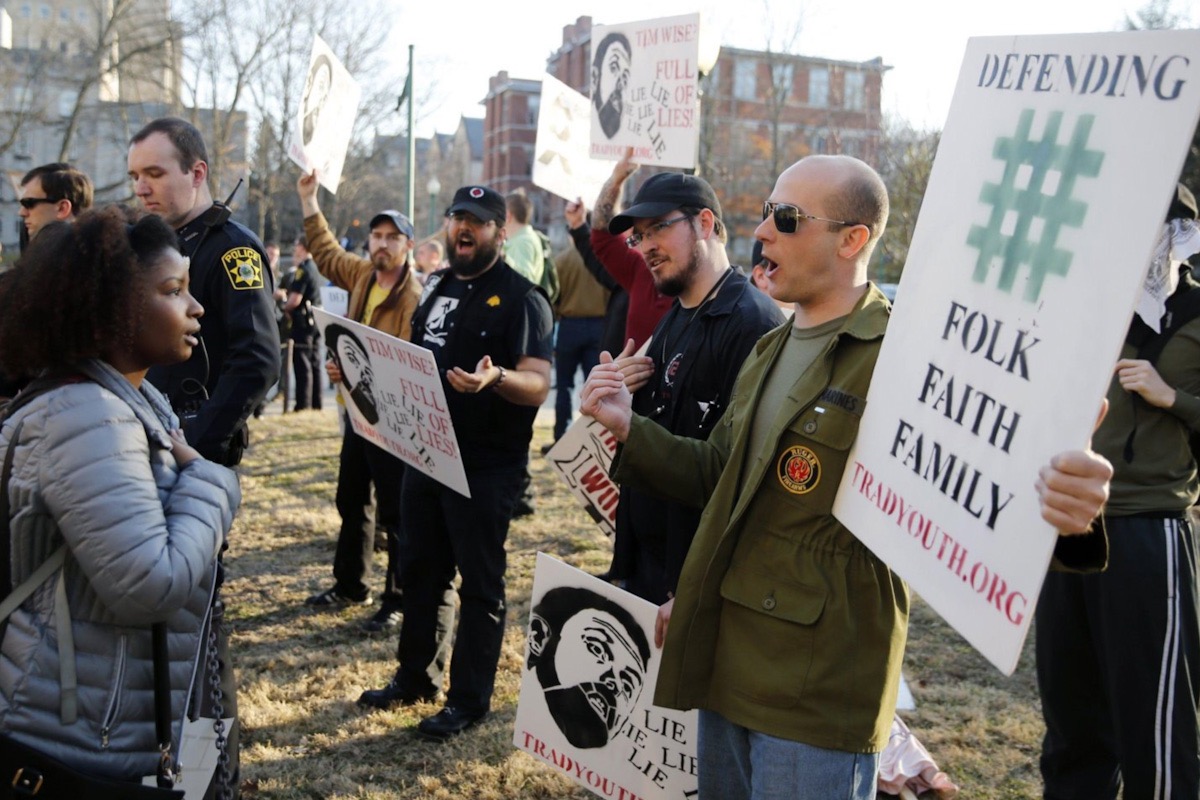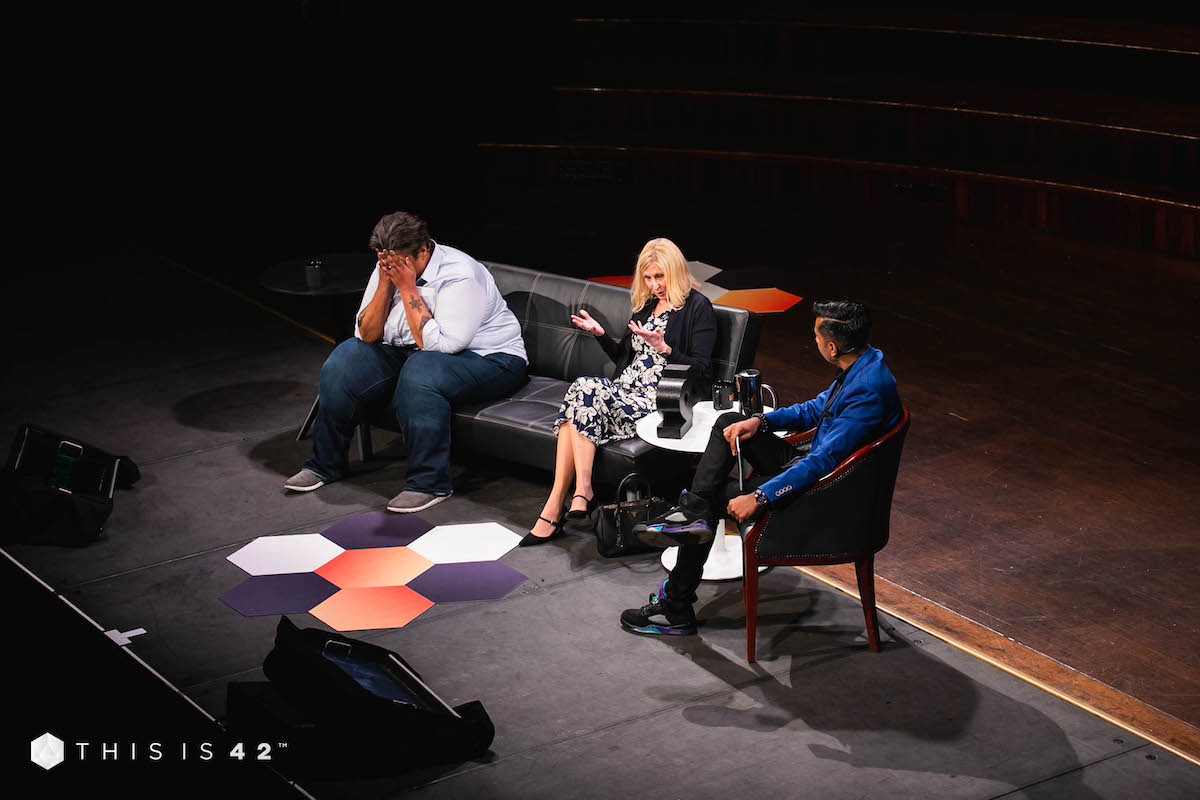racism
Intersectionalism Is Nonsense. But the Backlash Against It Is Very Real
The theory of intersectionality, now widely embraced by self-described feminist activists, maintains that non-whites, women, and LGBT individuals face systemic oppression whose scope increases according to the number of minority statuses a person holds.

The campaign to silence those who question progressive ideas about race and privilege requires frequent rebranding. Labels such as “far-right” and “alt-right,” which once might have served to strip a person of his or her livelihood and personal reputation, have become such common terms of abuse that they’ve effectively become meaningless. The words “white nationalist” once were used to describe someone who actually supported the creation of a white ethnostate. But now, activists are claiming that the mere act of making an “okay” hand gesture could mark you as a “white power” extremist—or at least someone who is “alt-right-adjacent.” The goal of this perversion of language is to drive up the number of people who may be classified out of hand as extremists, and thereby disqualify even the mildest forms of dissent as de facto hate speech.
As a visible minority, I’ve experienced my share of prejudice and ignorance. I don’t deny that racism exists and that it is repugnant. But the solution is not to divide society into ideological factions, with one side being publicly shamed and banished, while the other is given carte blanche to promote its own, increasingly fanatical, intersectional doctrines.
The theory of intersectionality, now widely embraced by self-described feminist activists, maintains that non-whites, women, and LGBT individuals face systemic oppression whose scope increases according to the number of minority statuses a person holds. The fewer boxes you check (straight white men don’t check any) the more “privilege” you are deemed to possess. This privilege, which now serves as a sort of intersectional mark of Cain, is invoked to justify reverse racism (though a true intersectionalist would argue that this is a misuse of the word “racism,” since the term only may be applied in regard to the mistreatment of a so-called “person of color”).
But there is a price being paid for this belief system—retaliation from those who understandably don’t appreciate being the subject of discrimination. A recent study in Political Psychology—a journal dedicated to the “psychological aspects of national and international political developments”—discussed this growing “whitelash” (or white backlash), and the underlying psychological reasons why individuals hold white nationalistic views.
In a sample of over 15,000 New Zealand registered voters, the researchers found, perceptions of group-based deprivation (that is, the belief that one’s own ethnic group is losing out due to policies that help other groups) were associated with increased feelings of nationalism; and that nationalistic beliefs increased the psychological wellbeing of those who felt that they were being deprived. “What our model shows, for the first time, is that it is possible for a group to feel unfairly treated within a larger political entity (in this case, the nation) and simultaneously identify strongly with that entity,” the authors write. “One reason why this might be the case is that nationalism buffers well-being against the negative psychological consequences of perceiving one’s group to be deprived. These findings imply that the rise of nationalism in white-majority countries might be, in part, a reaction to a perceived loss of ingroup status.”
The term “intersectionality” doesn’t appear in the paper. But among elites, intersectionality and similar doctrines—which openly devalue white people by presenting their accomplishments as the product of bigotry instead of hard work or talent—have been primary drivers of the “perceived loss of ingroup status” described in the paper.

The study’s results seem intuitive: If a particular group (of any skin color) is constantly being lectured that they are less worthy than others—and also that complaining about such lectures is itself a symptom of privilege and racism—what other outcome might we realistically expect? Ending discrimination against minorities shouldn’t require promoting intolerance against the majority. Similarly, defending individuals of the majority group from unequal treatment isn’t tantamount to “complicity” in the oppression of others.
We are rightly skeptical of nativists on the political right who express fears of immigrants “stealing” their jobs. But progressive intersectionalists who present white privilege as the root cause of every form of social injustice are just as ideologically toxic. As Bret Weinstein put it in a recent video, “the intersectionalists may end up creating the very enemy they claim they are fighting.”
To be clear, I share the intersectionalists’ abhorrence with actual white nationalist and white supremacist ideas. I’ve realized, however, that everyone who is categorized under these labels does not belong to a single homogenous group. Some don’t, in fact, think less of minorities, or believe that white people are superior. Their political activism, in this case, is motivated by a desire to support a group (their own) that they believe has been demoted to the bottom of society’s status totem pole. To the extent that these nationalistic activists argue there should be no totem pole whatsoever, they are at least nominally basing their appeal in the liberal notion of individual equality. Their slogans and behavior often aren’t polite or excusable. But understanding how they come to their views is a more effective response than simply denouncing them as Nazis, an approach that has made it impossible to have any sort of logical or constructive dialogue.
Some well-known “intersectional” journalists have even taken to smearing mainstream media outlets that publish anything they disagree with—including Quillette—as “white nationalist” journalism. But a reasonable person might ask: If that’s the case, why does Quillette have an Asian woman (i.e., me) as one of its few regular columnists? Ask this question in a public forum, and the response from intersectionalists will be—I promise you—to bring up examples of Jews acting as Nazi collaborators. More broadly, those of us who are not white, but who question prevailing orthodoxies about race, often are dismissed as “useful idiots” and media “opportunists,” instead of being considered independent thinkers. Who is the real racist here?

“Everyone I don’t like is Hitler” used to be a funny internet meme. But it’s become a fairly accurate description of intersectionalist rhetoric—a phenomenon that isn’t funny at all. This kind of rhetoric doesn’t mend divisiveness within society. And doubling down whenever anyone questions it only serves to alienate potential allies who oppose racism and reverse racism alike—myself included.






